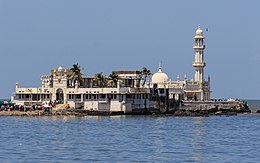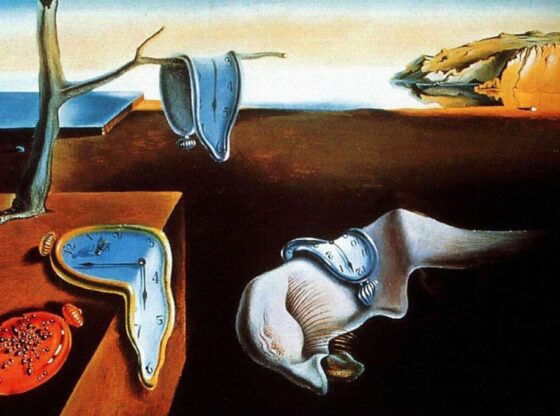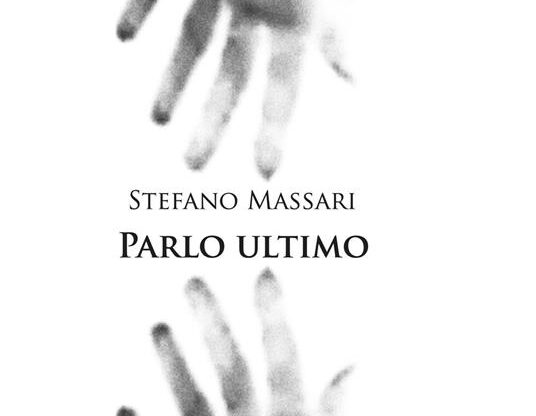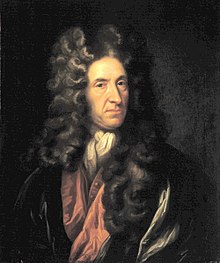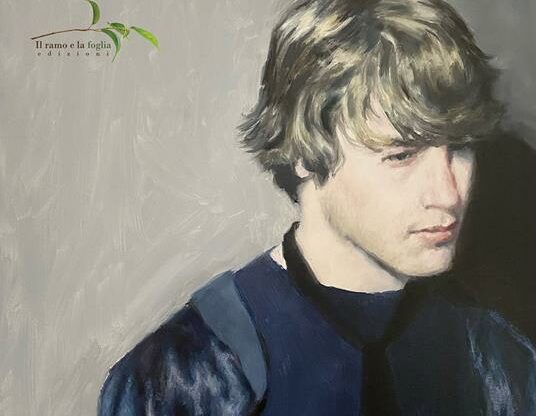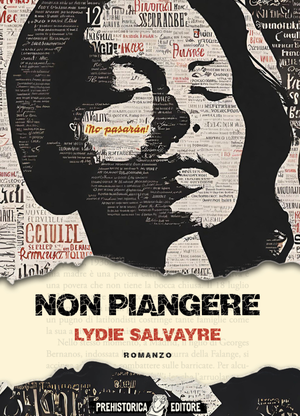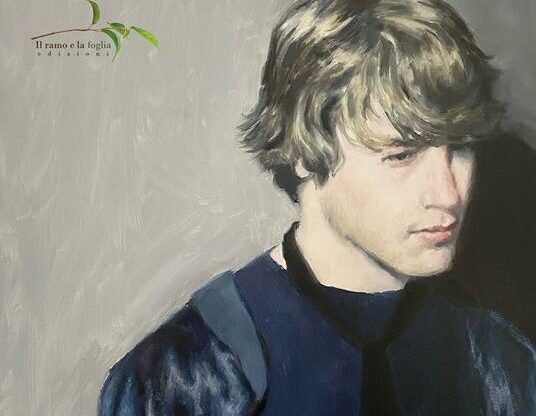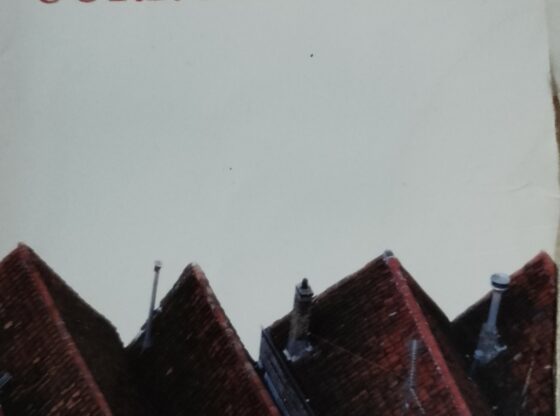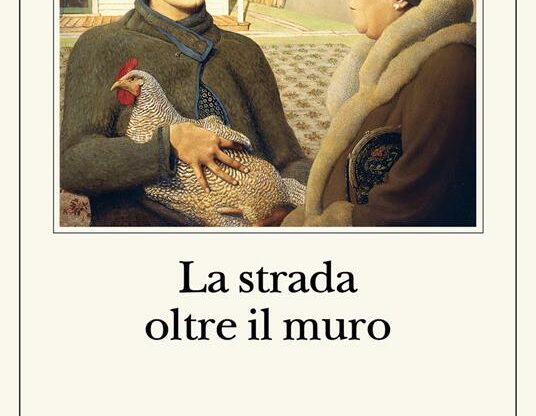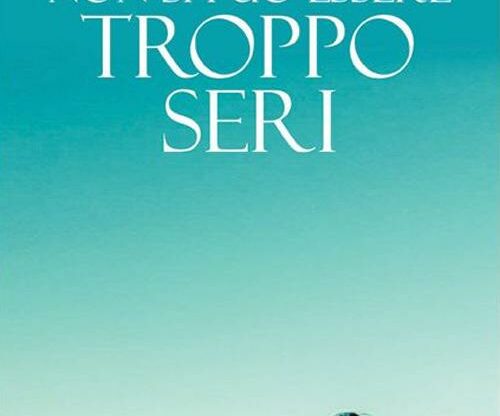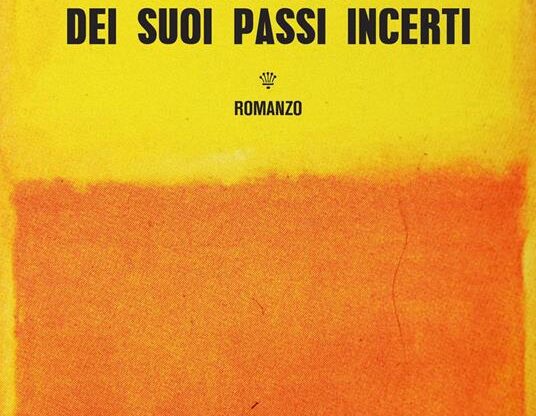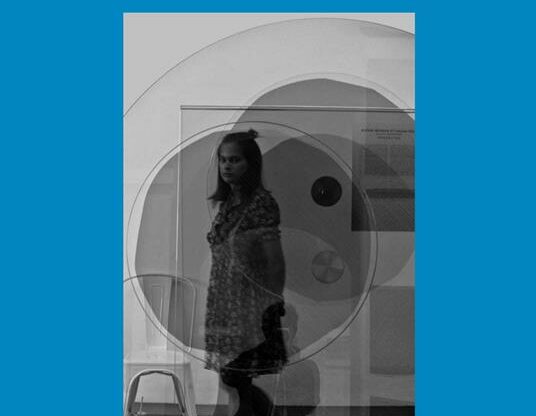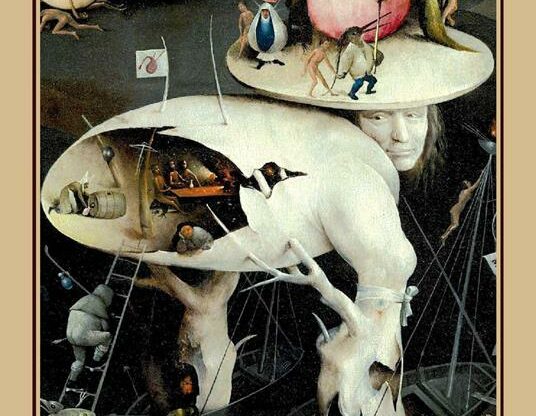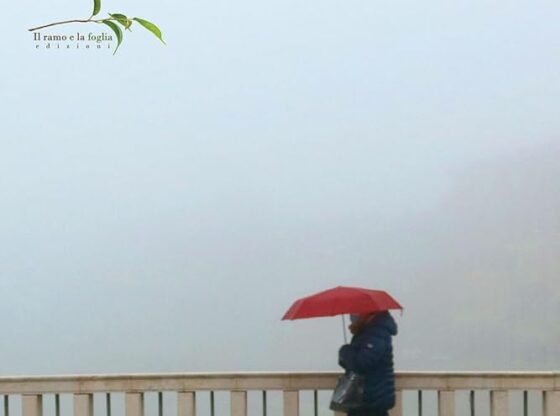JOHN FANTE FESTIVAL
“IL DIO DI MIO PADRE” 25-26-27 Agosto 2018
When the ‘Third World’ is no longer maintained at a distance ‘out there’ but begins to appear ‘in here’, when the encounter between diverse cultures, histories, religions and languages no longer occurs along the peripheries, in the ‘contact zones’ as Mary Louise Pratt calls them, but emerges at the center of our daily lives, in the cities and cultures of the so-called ‘advanced’, or ‘First’ world, then we can perhaps begin to talk of a significant interruption in the preceding sense of our own lives, cultures, languages and futures. (1)
• Introduction
Under the light of the nowadays situation, that is to say the huge immigration flow from the East countries, the above quotation appears even more actual than before. We are experiencing a dramatic situation, not only because Europe is invaded by millions of migrants, and we are not materially prepared to give them an adequate and worthy asylum, but moreover, because they risk their own life any time they travel by old and bad boats full of people of any age. In fact, many of them die during their journey either suffocated under the holds of these long boats or thrown into the sea by the same people who have organized that journey. Every day we hear about young men, children and their mothers who could not reach the other side of our Mediterranean Sea. Even if many people have tried to convince us that we have the duty to receive them and give them whatever they need, because we have to remember that in the past Europe also experienced a large migration towards the U.S.A., everyday new barriers are raised to stop this human stream. Anyway, the situation of these new migrants is much worse than the one we know through our ancestors. Those, who left their own country to go to the United States at the end of the xix century or at the beginning of the xx century, were in search of better life conditions; these, who now risk their life to reach the Western places leave wars, prosecutions, hunger, illness, and a life that is not worthy of living. They have no chance, so that they even pay lots of money just to dare life through the perils of impossible journeys. Then, there is another important difference between the nowadays migrants and the ones of the past, because it involves not only different cultures, ways of life and languages, but above all religion: the muslin religion, which, viewed from different perspectives, develops hate and repugnant behavior even among people belonging to the same social group. These last emigrants have not even a cardboard luggage; they have nothing at all, only sorrow and desperation, pushed towards the new world by a great hope. Then, there is another point which is against the new migrants: I refer to the extremist groups, who, while embracing the Islam creed, spread death and desperation all over the world. The result is that the bad behaviour of a group of people covers the whole of muslim population. As a consequence, Western people view Eastern inhabitants with a suspicious eye, so that, honest persons pay a high price when they ask for asylum, because are not received worthily. In this case, we have to remember that Italian migrants to the United States were also considered ‘mafiosi’, and even though we had exported ‘mafia’ not all Italians were ‘mafiosi.’ On the contrary, the majority of them were very good people with the only sin not to be rich and culturally advanced. Rather, they had great expectations, above all for their children. When they reached America, and they seemed to have achieved their dream, they had to face not only material sacrifices and lots of abnegations, but, moreover, they had to suffer derision and scorn. Of course, migration is a state of our soul, of our mind, of our feeling. But, if we want to examine migration deeply, we have to value this phenomenon from a wider perspective. It is an inborn situation common to all human beings, because any person is moved by a strong will and a strong desire to know whatever is possible and impossible in order to satisfy a deep desire of knowledge. Without this desire progress will stop and the world will go to an irreparable and secure end. Curiosity is the spring of life, without curiosity man betrays his own natural essence and acts in an unnatural way. Viewed under this side, the choice of changing land as well as that of leaving old friends and even families might appear only as the essence of a feeling common to human beings. But, we all know that it is very difficult to change place, language, culture, friends in search of uncertain fortune in uncertain countries. Very often, the new migrants do not even know where and when they will be accepted. Their sad faces, reflecting their dark thoughts, brighten with joy when finally they land safely, and a friendly hand is stretched towards them. They even pay a lot of money in order to achieve freedom, a freedom which sometimes they pay with their own life or with the life of their own children. A freedom which deserves any sacrifice, and they know how hard their sea crossing will be, but they are ready to risk. Erri De Luca describes this feelings very well, and he also compares the nowadays immigrant situation with the one occurring in the last century and involving the ‘legal emigration,’ as he calls it, when Italian people, leaving their land and their families, crossed the Atlantic Ocean in search of secure bread and a safe life.
“Altro passeggero: io ho pagato per la libertà. Non importa come viaggio, mi possono infilare pure in una cassa da morto, basta che mi fanno sbarcare vivo. Dev’esserci da qualche parte la libertà e se sta dall’altra riva del mare io la trovo.
Altro passeggero: Abbiamo patito così tanto che qua dentro sarà una villeggiatura.
…Nostromo: Gente di popoli nemici che a terra si è scannata e si scannerebbe subito, qui dorme fianco a fianco e si aiuta pure. Com’è strana l’umanità. …
Capitano: … Quando l’emigrazione era legale scendevano a migliaia nelle stive della terza classe e risalivano all’aperto dall’altra parte dell’oceano. Allora il molo del porto di Napoli era nero di madri. Facevo il fuochista nella sala macchine dei transatlantici. Gli emigranti viaggiavano meglio di me, tenevano speranze. Io tenevo solo la voglia di mangiarmi la paga con le puttane di New York … Di quegli anni di inizio del millenovecento tengo a mente il molo Beverello di Napoli fitto di gente che salutava, salutava, salutava a vuoto che già quelli di terza classe stavano nei cameroni sottocoperta. La nave si staccava dalla città trainata dai rimorchiatori. Partiva la sera, i motori al minimo, si potevano sentire le voci che ancora chiamavano da lontano i bei nomi meridionali. Quando eravamo già all’altezza del faro, staccati da terra ma non ancora in navigazione sentii lo strillo. Stavo affacciato a poppa vicino alla bitta della fune di ormeggio a guardare le luci dei fanali a gas, s’era fatto silenzio come una tenda calata e all’improvviso il grido, una coltellata che straccia il lenzuolo. Una donna che non potevo vedere gridò dal molo il nome, Salvatore, come una che si strappa il petto e fa uscire la voce dall’intestino e non dalla gola. Gridò da madre, da sirena, da cagna. Un nome strappato via dal cuore e gettato al largo a sillabe disperate: Sal va to re e e e. … Mentre lo ripeto mi torna la pelle d’oca. Quella donna sconosciuta ha cucito nelle mie orecchie il nome di un estraneo e mi ha lasciato una cicatrice musicale nella testa. Un nome solo e basta, finito nel timpano di un marinaio indifferente che non faceva il postino e non poteva portare l’ambasciata a quel Salvatore, per dirgli che lo chiamava sua madre con l’ultima voce buona per raggiungerlo, con l’ultima sua forza carnale. … Allora le vite si spezzavano sopra un molo, si scambiavano addii veraci, sicuri di non rivedersi più. Si poteva sentire il rumore degli addii, un brusio di raccomandazioni e una slogatura di ossa.
Nostomo: Con l’emigrazione clandestina si salutano prima, s’imbarcano già salutati.” (2)
In addition, if we follow Giulio Soravia’s thought, we have to realize that the wish to travel is an ancient human condition. As previously said, it is linked to curiosity. It is a state linked to our soul, to our feelings, to our mind. It was born with man causing migration, which itself caused world population. The first human beings from the Eastern – South Africa savannah –, in a ‘few’ millennia moved all around and reached Europe and Asia. Then, the Australian and the American continents were discovered, and now we expect to go to other planets easily.
“Gli uomini più antichi nacquero nelle savane dell’Africa orientale e meridionale e in «poche » centinaia di millenni giunsero fino all’Europa e all’Asia estrema. Più tardi, ma con indefesso progredire, conquistarono, il continente australiano e quello Americano. … In epoca storica, con buona pace di chi crede che le migrazioni siano un fatto degli ultimi decenni e non una condizione perenne e naturale dell’umanità, gli spostamenti continuarono. … Ma la voglia di viaggiare, il bisogno di muoversi non era scomparso e i commerci costituirono movente o pretesto o necessità – o tutto assieme – per continuare il viaggio. … In epoca storica Alessandro il Macedone aprì le porte dell’India al Mediterraneo. L’eco delle sue gesta è tale che nel mondo antico permane la sua leggenda come tema di racconto esemplare.” (3)
In conclusion, this short introduction about the life conditions of the migrants coming into our Western world wants to say that migrants deserve our respect, our responsibility and our welcome. In order to realize their expectations, we have to offer them a good level of integration with our customs, but moreover we have to accept their diversity, as Pope Francesco has recently stressed (13th August 2017) during one of his homilies “we have to help their integration.” In my opinion, a satisfactory way to achieve this aim would be to learn their languages and to introduce them into our school curricula. Language as well as context are the most important means of communication, they help to start any kind of relationship, and also establish a close atmosphere with the other, an atmosphere which helps immigrants to feel at home. Of course, while learning their languages we acquire their culture, their behavior, too, thus, it becomes easier for us to understand them. Since most of these people speak Arabic, Urdu or Hindi it will be a good idea to spread these languages, which, being tongues rich from both the semantic and phonetic point of view, will enrich the mind of any people who try to learn them, being either a child or an adult. Learning languages at any age helps preventing senile diseases for elderly people, increases and improves behavior, enriches the brain and enlarges personality. It has been proven that a plurilingual brain is a good therapy also to cure personality disturbance. Children benefit from learning foreign languages, because they acquire also cultural data belonging to foreign countries. In so doing, they improve their cognition and also learn to accept other realities much easier; moreover, they learn to observe without judging. We know that it is impossible to forget about one’s own origin, and we don’t want that. The aim is to achieve a high level of integration while maintaining one’s own language and culture and share them with the host country inhabitants. John Fante, a second generation son, during his life has always kept in mind his family origin, so, in his writings we find linguistic as well as cultural examples of Italian traditions and ways of life. Of course, these cultural aspects, while mingling with the American-English language, are described by adding a few vivid expressions taken from Torricella Peligna as his parents used at home. This peculiarity did not limit his way of writing, on the contrary, it contributed to create a more personal and rich style. As a consequence, he was considered one of the most important writers of his time, and at home in Torricella Peligna people are very proud of him, because through John Fante their language and customs acquire a deep and wide cultural value: they break barriers and prejudices.
“Garlic in the keyhole when they were born?”
“Both times,” papa said (P. 31) … How is the little bambino? (p. 24 ) … He’s my paisano (p. 33) … Even if the nurse was right, tradition insisted that I remain (111). (4)
Coming back to our aim, I want to stress that this essay tries to outline the process concerning migration through the literary works of John Fante. Migration, of course, should not be valued only from a sociological perspective, since it includes heavy psychological burdens too. John Fante has been able to capture the smallest nuances concerning human feelings, and then, through a personal evaluation, he has transferred his experience to the characters of his stories. His high level literary style, simple and rich, pure and dense, is the medium between the author, the characters and the reader; there is a strict relationship between them, and it is difficult to separate the life of the characters from that of the writer as well as of the reader. The analysis is so true and deep, so sincere and genuine, so mature and natural that it touches everybody in such a way that it is hard for the reader to part from both the author and the characters. There are real stories lived by real people; nothing has been left to chance; everything reflects the experience of the thousand people who live between two realities; the former linked to the mother country and the latter related to the host land. The whole of Fante’s literary production is about immigrant people, either when he openly announces it or when he only touches the feelings and the perceptions related to his characters.
The Little Brown Brothers gives us marvelous examples that elucidate this question. Indeed, while reading the adventures of Julio Sal, one easily believes that Sal, a Filipino emigrated to the United States, incarnates the political situation lived by all immigrant people arriving in America. Consequently, from the sociological point of view the cause of migration – the battle against American racism – appears the main aim of this book. However, in my opinion, the point stressed by Fante is mainly centred on the infinite reactions and numerous feelings that agitate most human beings in any part of the world and in any conditions. Of course, in this case migration is the central focus, but it might be viewed as an excuse used to investigate the innermost recesses of human soul. Very rarely we read clear sentences related to the conditions borne by immigrant people, while everywhere we perceive the humiliation derived by the social and moral attitude of America against foreigners. We perceive this stressing situation by the sense of pain and sorrow that pervades the whole of Sal’s behaviour. Poor Sal, a little brown man who had even bought an engagement ring – a single diamond set in white gold – for an imaginary American girl friend: Helen. “Helen? No more? No Anderson, no Smith, Brown? No more. Helen, all the same. Helen.” (5) And then, the anxiety pervading Sal for the “poor Filipino boy” who was going to enter into a hotel with an American girl. And the hundred tickets bought to have the chance to dance with Helen: “ The law made it so, and the law said Filipino boy could not marry white girl. … I don’t have to take that kind of talk from a Filipino. Take it or leave it.” (6)
The anguish to be refused in any occasion, is, as Stephen Cooper points out, “a convoluted exploration of the consequences, both comic and tragic, of America’s racist legacy” of that time.(7) Even the empty seat near Sal is wrong, only because it is near a Filipino; it is better to stand rather than to sit near a Filipino: “The bus jerked forward and the girl caught herself on an overhead strap. She was about to throw herself into the seat when she saw Julio Sal.
2) The heavy burden of migration
In this section I want to examine the theme of migration from the socio-psychological point of view in the light of John Fante’s works. I intend to point out the distressing situation of those people arriving in the United States at the beginning of the last century.
The theme of migration has always been a central problem for the American government, but it reached a massive proportion especially during the early years of the xx century. Nowadays, this phenomenon has touched many other countries, as focused above. While covering different fields it includes sociological as well as political circumstances: education, religion and, of course, language development of both the children of immigrant people and those belonging to the host country, who are also influenced by this phenomenon. As a consequence, each nation has developed and is still developing an accurate plan concerning the teaching and learning of foreign languages as well as the re-organization of the whole school system.
Thus, the problem attached to education not only concerns immigrant children, who, because of an inadequate knowledge of the host country language, slow down their own general cognitive learning process, but it also involves the native children, who feel embarrassed when contacting their foreign peers. The psychological implications linked to a mixed situation not very well balanced ruin the classroom atmosphere, which is generally based on collaboration and on reciprocal exchange of experiences coming from both familiar and external settings. Since the school comes to be seen as an important place where the child has the opportunity to develop education as well as behaviour, the school curriculum needs to adapt to the new situation. Nowadays, more than before, it becomes urgent to promote multilingualism and consequently multiculturalism, and school in general, and family in particular, have a relevant role on this matter. One foreign language is no longer enough, we must promote at least two foreign languages in the school curricula. My main aim, developed in any essay I write, is to stress that language learning is the most important means to promote integration among people, since language is the real knot that binds people. Mary Louise Pratt has been a pioneer in this field, and she always encourages foreign language acquisition in the United States. She says that Americans need to be shown that monolingualism is a handicap and that relying on foreigners’ willingness to learn English limits transcultural communication to “all but the most limited and scripted” exchanges. But, Pratt has another virtue, which shows when she says that it is of great value to encourage immigrants to save the heritage linked to their own language and culture. In doing so, she stimulates transcultural understanding, and, as a consequence, her notion of ‘contact zones’ expands by increasing multilingualism as well as multiculturalism. (9)
In brief, the world linked to migration is very complicated; the internal debate between language and behaviour affects immigrants’ mind and lasts throughout their whole life. They, while trying to integrate in order to gain host country recognitions, in the meantime, feel grieved to remove their origins: betrayer and betrayed.
John Fante, the Italian-American writer offers a rich choice of sequences about this topic in all of his novels, but especially in both “The Odyssey of a Wop,” which is the most known work about racism, and in The Little Brown Brothers, too. He does not confine himself to describe the situation as suffered by Italian people, but, just going through his own experience, aware of personal humiliation, he extends his physical and moral struggle to defend other races.
“Many time, I wish to die. Many time I say to myself, ‘Purification, you are Filipino, and you are Jew. Is too much. Is better you kill yourself.’ Even Filipino spit on me, because I am Jew.” (10)
I don’t like the grocer. My mother sends me to his store every day, and instantly he chokes up my breathing with the greeting: “Hello, you little Dago! What’ll you have?” so I detest him, and never enter his store if other customers are to be seen, for to be called a Dago before others is a ghastly, almost a physical, humiliation. My stomach expands and contracts, and I feel naked.” (11)
Migrants are all the same. It seems that they focus more on their identity and traditions once they are far from their own lands; they have the same problems, the same urgency to earn money, the same necessity to establish a balance between two different realities; they suffer from a certain ambiguity. In the American situation at the beginning of the last century, in fact, they were neither a hundred per cent Americans nor a hundred per cent Italians, Filipino or Mexican, and so they showed the same feelings: “Nobody liked that machine. It didn’t matter if you were a Filipino or an Italian or a Mexican.” (12)
Moving from these statements, and starting from America – a country that knows much about migration, because of the American dream of the Thirties and Fourties, which meant economic prosperity –, John Fante – the American son of Italian parents, becomes an emblem, a symbol. He appears to be the most relevant writer depicting this situation. The economic welfare was attracting the low class people coming from many underdeveloped countries, who decided to leave the hard and poor existence of their lands in order to gain a better future at least for their ‘American’ children.
John Fante looked at migration from a double point of view: an introspective as well as a sociological perspective, while confining one into the other.
“From the beginning, I hear my mother use the words Wop and Dago with such vigor as to denote violent distaste. She spits them out. They leap from her lips. To her, they contain the essence of poverty, squalor, filth. If I don’t wash my teeth, or hang up my cap, my mother says: “Don’t be like that. Don’t be a Wop.” Thus, as I begin to acquire her values, Wop and Dago to me become synonymous with things evil. But she’s consistent.
My father isn’t. He’s loose with his tongue. His moods create his judgments. I at once notice that to him Wop and Dago are without any distinct meaning, though if one not an Italian slaps them onto him, he’s instantly insulted. … He pretends to hate the Irish. He really doesn’t, but he likes to think so, and he warns us children against them. … Thus I begin to loathe my heritage. I avoid Italian boys and girls who try to be friendly. I thank God for my light skin and hair, and I choose my companions by the Anglo-Saxon ring of their names. … At lunch hour I huddle over my lunch pail, for my mother doesn’t wrap my sandwiches in wax paper, and she makes them too large, and the lettuce leaves protrude. Worse, the bread is homemade; not bakery bread, not “American” bread. I make a great fuss because I can’t have mayonnaise and other “American” things. (13)
… The depth of her dislike was unfathomable. Harriet had said she was ‘changed.’ Was this change, that she hated me more? What had I done to this woman? Had I been cruel to her daughter , or caught in the sack with another woman, the measure of a mother’s bitterness would have been understandable. But there was more than hatred in those ages, glittering eyes. Fear was there, paranoia, a sickening obsession, the dread that I might slash her with a knife, Italian style. Nothing I said or did would rid it from her mind, and it left me sickened and enraged.” (14)
Really, the whole of John Fante’s literary production offers a good example for describing this delicate and moving situation: a situation “full of life” and consequently “full” of great expectations; a kind of expectations which stimulate immigrant people to leave their own country in order to take refuge in a foreign land even though here everything appears not only simply foreign, but even strange and absurd. John Fante seems the perfect interpreter to expound the anguish of those poor people, who, because of the stimuli received by a great force – the force of youth, the force of hope, of desire, of dreams – accept humiliation in view of something better. John Fante is a man “full of life;” a man who reacts with violence to every detail; a man who lives every tiny aspect of life with passion; a man who can be very delicate and, at the same time, very rude; a man “full” of sharp feelings, of precise rules, of clear ideas, of deep sensations linked to both simple life and religion: a sweet and authoritative man.
“The moment I had dreaded now arrived. I looked at my wife. There were stars in her hair, stars in her eyes that, bathed in tears a moment ago, shone now with high happiness. It seemed absurd that her conversion should make a great difference, and yet it was so. She was not the old Joyce. She was not the Joyce of even an hour ago. There was no solving the chemistry of this change, I only felt it, knew it, saw it. The thing I felt was maturity, a quality of womanhood not associated with her pregnancy; a tradition, rather an identification with Mother Church, with the Church’s high reverence for women, an elevation of her to that state I felt for the Virgin Mary as a boy. We looked at one another, and in that moment she too knew that I had sensed the change, the all-pervading transformation of her personality.” (15)
It is not difficult to discover all these features while reading the pages of his books. He does not camouflage his ideas; he writes as he talks, without prejudices, with frankness; he does not hide himself behind a curtain; he is as genuine as a painter or a musician who transfer instinctively their feelings either on canvas or onto a sheet music. (16)
Certainly, the many dialogues that alternate with his prose establish a vivid and a true relationship between the characters, who, while exchanging opinions and suggestions, strengthen their behaviour and attitude in order to relate to one another.
“There’s nothing wrong with you.”
“I knew it all the time.”
He smiled.
“What’d you have for dinner last night?”
I told him: spagetti, meat balls, salad, wine, ice cream.
“Why, doc?”
“Cholesterol. The analysis shows an excess. What you had for dinner explains it.”
“Cholesterol! Good God, Doc! I read about cholesterol in a magazine. It’s dangerous. It blocks up arteries and causes heart attacks. I read about it in Hygeia.”
“Do you have heart trouble?”
“Not yet, but …”
“Forget it.”
“Cholesterol! Me, of all people.”
“… My house! Why had this happened to John Fante? What had I done to upset the rhythm of the stars in their courses? I went back to Joyce’s hole and stared. I picked up a piece of rotten wood. There I saw them, the little white beasties, crawling in the dead wood, the wood of my house, and I took one between my fingers, his little white legs pawing the air – a termite, an inhuman beast, and I killed it; I, who couldn’t bear killing anything, but I had to snuff out his life for what he and his vile breed had done to my house. It was the first termite I had ever killed.”
“You think! Who asked you to think? I told you: oysters. Eggs. I been through it. I give you advice from experience. What you been eating – candy, ice cream? Writer! Bah! You stink like the plague.”
This was my Papa for sure. He had not shrunk, after all. And the fig tree was as big as ever.
“Go see your Mama.” There was sarcasm in his voice.
“Go tell her what a fine big boy she’s got.”
“Greeting Mama was always the most difficult task of a homecoming. My Mama was the fanting type, specially if we had been away more than three months. Inside three months there was some control over the situation. Then she only teetered dangerously and appeared about to fall over, giving us time to catch her before the collapse. An absence of a month entailed no problem at all. She merely wept for a few moments before the usual barrage of questions.” (17)
Apart from Full of Life, which shows a very clear image of the character linked to the real John Fante, it is also easy to prove his vital and religious force by simply looking at the titles of his works; titles, each containing a key word that leads us beyond the limited borders of a narrow life: 1) Wait Until Spring, Bandini; 2) The Road to Los Angeles; 3) Ask the Dust; 4) Dreams from Bunker Hill; 5) The Wine of Youth; 6) The Brotherhood of the Grape; 7) The Little Brown Brothers, etc.
If we follow Lakoff and Johnson’s perspective that metaphors are all around us, “that metaphor is pervading in everyday life, not just in language,” that “our conceptual system is largely metaphorical,” (18) and we apply this notion to the words contained in the titles of John Fante’s works, we achieve a better understanding of his message.
1) Wait, suggests the necessity for human beings to rely on a superior entity, and to be patient too, because surely their expectations will be fulfilled;
2) Spring is linked to re-birth and expresses a deep moving from the soul, both psychological and natural as we find it in human beings and in the awakening of nature.
3) The Road, might represent the long walk of our life, where ‘long’ is also metaphorical, which, for all that it is short, is however mostly positive; it transports us to a place of hope, a place for a better life: Los Angeles.
4) Ask, again announces the presence of somebody else, in this case the Dust, the essence of life, the essence of human beings, the essence of God.
5) Dreams, suggests the main engine of human life, and Hill – apart from the geographical spot he knew very well – stands for a place half way between earth and sky: not so high not so low; a place from where you can look down from, but from where you can also be looked at.
6) Wine, a drink thought of as a necessity in order to grow in good health, in good humour: the blood of Our Lord;
7) Youth, the best age of our life: the age of dreams, of hopes, of expectations, of plans.
8) The Brotherhood, a loyal community of feelings, of ideas gathering around the Grape, the essence of divine blood; and then The Brothers, the brothers of the world, no matter if they are either Little or Brown.
Every grammatical detail also adds relevance to the strong semantic value included in the title of the story; even prepositions mark the point of view of the author, who looks ahead, never behind, who is linked to the Other, to others: Until, To, From, Of. And then we have the use of the article, a well definite article, which identifies the objects in question very clearly: The Dust, The Wine, The Brotherhood, The Grape, the Little Brown Brothers; nothing and no one is unidentified.
If I dare a hypothesis about the value of the title of John Fante’s masterpiece: Full of Life, not only the title itself is a plain expression of his idea about life, which has always a positive essence, but it plays on the ambiguity linked to a language which does not make use of affixes and case-marking to establish gender. In fact, Full of Life attains to everything, to everybody; it might be plural and singular, masculine and feminine; it expresses the real essence of life: its beauty, following the author’s point of view.
How could we translate Full of Life into a language which distinguishes gender and number through affixes, suffixes and cases? How could we translate Full of Life into Italian, for example? Previously, I have used the expression full of life to describe ‘a situation’ (page 4), which in Italian is feminine; soon after I have referred it to ‘a man’ which, of course, is masculine. Then, I attached ‘full of life’ to ‘expectations’, which is feminine and plural. So, Piena di Vita, as it is the official translation of the film in Italian, is really ambiguous. Why Full of life has been translated Piena di Vita only singular and moreover feminine? Why is the article omitted also in Italian, a language in which the absence of the article near the head (19) – Full (in this case a noun-phrase if we turn the adjective ‘full’ into a noun and translate it: la pienezza/bellezza) does not represent the expansion of the concept linked to the head? In my own opinion, the translation better rendering the real meaning of the whole story, a story in which life occupies a central role, in which life is full of great expectations, because of the coming children, of a new home, of the hope to become a well recognized writer, will be La Pienezza della Vita or La bellezza della vita, since ‘pienezza’ stands for ‘bellezza.’ Furthermore, we will appreciate much more the joy of life depicted in Full of Life, if we think that this story was written when John Fante was experiencing the most tragic moment in his life: when he was becoming blind and had already lost one of his legs for diabetes; in essence, life is depicted as it is, with its anguish and with its fears – the fear for the coming, uncertain future –, but, above all, with its love.
“My house! Four bedrooms. Space. Two of us lived there now, and one was coming. Eventually there would be seven. It was my dream. At thirty there was still time for a man to raise seven. Joyce was twenty-four. One every other year. One coming, six to go. How beautiful the world! How vast the sky! How rich the dreamer! Naturally we would have to add a room or two.
… I walked out into my front yard and stood among roses and gloated over my house. The rewards of authorship. Me, author, John Fante, composer of three books. First book sold 2300 copies. Second book sold 4800 copies. Third book sold 2100 copies. But they don’t ask for royalty statements in the picture business. If you have what they want at the moment they pay you, and pay you well. At that moment I had what they wanted, and every Thursday there came this big check.” (20)
In brief, this essay will focus on the psycho-linguistic situation experienced by immigrant people. John Fante is a contemporary writer (Aril 8th 1909 – May 8th 1983) born in the United States (Denver) from Italian parents coming from Torricella Peligna, a village in Abruzzo. He has followers in both countries, and consequently for one reason or another both Italy and America claim the ownership of this famous author, who by describing the immigrant’s hard lives, speaks about the general conditions of all people around the world: those who move from the mother country towards a foreign land, and those who never leave their home, but notwithstanding that, also feel unstable and insecure.
From this perspective, even though John Fante has been considered a writer, who has focused on social problems, he goes beyond the sociological point of view, as Giovanna di Lello points out in her video. (21) He speaks to himself first of all, and then to others and about others. He is an accomplished writer, one of the greatest in the American literature. He has often been considered even greater than Hemingway, because he is able to touch, by starting from his own soul, his own skin, his own experiences, his own feelings, his own education, the most stressful reactions linked to the personal, familiar and social environment within the immigrant situation.
John Fante knew very well the moral and economic problems suffered by those who had left their homeland in the hope to find a real house, a real job, and a real home. Even though the American dream turned into a life where a clash of races (Italians, Yugoslavians, Polish, German, Philippine, Chinese, Japanese) had to fight not only one against the other, but moreover against the prejudices of the host country, the game was worth the candle, and at last those people succeeded in being recognized as regular citizens, as well as human beings within the new society.
“On July 6, 1918, Nick filed his Declaration of Intention to become an American citizen. Eighteen months later, on January 3, 1920, he took the next step in the process, raising his right hand to take the Oath of Allegiance and swearing to defend the Constitution of the United States against all enemies. Signing his Petition for Naturalization were witnesses … impressive evidence that Nick Fante was no mere wop bricklayer but a man among men to be reckoned with.” (22)
Language, of course, played a decisive role; to forget the mother tongue and learn the foreign language was the first aim of immigrant people, especially of their children. To forget their culture, their food, their ways of life; to forget their poor existence in order to gain a better life in a better place. But it was hard, very hard, so, despite destiny, they all suffered many difficulties before integrating into the host society. The ambivalence between the two countries – the native and the host – as well as the ambivalence between the mother tongue and the new language remains a focal point in the lives of immigrant people.
“My father studied the pictures at the supper table. ‘A Sicilian,’ he decided. ‘look how black he is.’ ‘How can be a Sicilian?’ My mother asked. ‘The paper says he was born in Boston.’ ‘I don’t care where he was born. I know a Sicilian when I see one’ His brows quivered like caterpillars as he studied the face of Father Ramponi. ‘I don’t want any trouble with priest,’ he brooded.” (23)
“Ho! Ho!’ he shouts. ‘Look who’s up! The Who’s up. Let’s get rid of the Wop!’
This is the first time anyone at school has ever flung the word at me, and I am so angry that I strike out foolishly. We fight after the game, this boy and I, and I make him take it back. Now school days become fighting days.” (24)
“Bruno Ramponi, and you don’t speak Italian? That’s terrible.’ The priest sank deeper in his chair and covered one eye. … ‘The Pope speaks Italian,’ my father said. ‘the cardinals, they speak Italian. The saints speak Italian. Even God speaks Italian. But you, Father Bruno Ramponi, don’t speak Italian.” (25)
“As I grow older, I find out that Italians use Wop and Dago much more than Americans. My grandmother, whose vocabulary of English is confined to the commonest of nouns, always employs them in discussing contemporary Italians.
… I avoid Italian boys and girls who try to be friendly. I thank God for my light skin and hair, and I choose my companions by the Anglo-Saxon ring of their names. If a boy’s name is Whitney, Brown, or Smythe, then he’s my pal; but I’m always a little breathless when I am with him; he may find me out. … Occasionally now I hear about a fellow named Dante. But when I find out that he was Italian I hate him as if he were alive… I do so, and amid the hysteria I nurse my conviction that only a Wop girl, right out of a Wop home, would ever do such a thing as this. Oh, you Wop! Oh, you Dago! You bother me even when I sleep. … One day I learn from my mother that my father went to the Argentine in his youth, and lived in Buenos Aires for two tears. That night I come awake with a jerk. In the darkness I grope my way to my mother’s room. … I whisper: ‘Are you sure Papa wasn’t born in Argentina?’ ‘No. Your father was born in Italy.’ I go back to bed, disconsolate and disgusted.” (26)
“From my place on the conveyor I could see the California yacht Club. In the background were the first green ripples of the Palos Verdes Hills. It was a scene out of the Italy I knew in books. Bright pennants flapped from the masts of yachts. Farther out were the whitecaps of the big waves that smashed against the jagged breakwater. On the decks of the yachts, lay men and women in careless white suits. These were fabulous people. They were from the movie colony and Los Angeles financial circles. They had great wealth, these boats were their toys. If they felt like it they left their work in the city and came down to the harbour to play with them, and brought along their women. And such women! It took my breath away to even see them rolling by in big cars, so poised, so beautiful, so easily at home in all that wealth, their cigarettes tipped so elegantly, their teeth so polished and flashing, the clothes they wore so irresistible, covering them with such perfection, concealing every body flaw, and making them so perfect in loveliness. At noon when the big cars roared down the road past the cannery and we were outside for the lunch hour I used to look at them like a thief peeking at jewels. Yet they seemed so far away that I hated them, and hating them made them nearer. Some day they would be mine. I would own them and the cars that carried them.” (27)
Italy, the birth place of John Fante’s parents, as well as America, John Fante’s place of birth, occupy an important role in his books, and the theme of immigrant humiliation, though very strong, is pervaded by the genuine love for the city of Los Angeles. This ambivalence tries to find a balance by connecting the language and the culture of both these places. But, in my opinion, the balance is seemingly compromised, as the Italian language is reduced only to a few expressions while the grammatical-syntactical structure is typically American, and so it is its semantic representation, which shows an adequate and rich choice of vocabulary. From the cultural point of view the balance is also compromised, since the level linked to traditions and attitudes reflects the typical Italian behaviour in line with the Abruzzese ways of life.
“Cranky, noisy, taking advantage of their patience, drunk a good deal of the time, he had free rein in San Elmo, and at night people heard him lurching home along deserted streets, singing bad renditions of “O Sole Mio,” people untroubled in their beds, saying, “There goes old Nick,” and smiling, for he was a part of their lives.” (28)
3) An analysis of Full of Life. Quotations are taken as examples to emphasize: a) the use of Italian expressions; b) a superb use of both prose and dialogues; c) cultural aspects and characters’ behaviour; d) superstitions, and e) also a comparison between Fante and Hemingway.
a) Italian language
“The baby. How’s the little bambino?” 24
“buy it. I talked to Joe Muto. He’s my paisano. He won’t sell to nobody but me.” 33
“Don’t you worry about it.” 35
“You have to pay? How much? … Them tolls cost me two hundred dollars.” 45 Don’t lose them tools. I got a level in there cost me twenty dollars. 46”He’s been anxious to get started. I been here two hours. I’m tired. I don’t sleep good on the train, but he wants to get started.” 63”enjoy yourself, Papa. Rest. Anything you want – just ask for it. You need more wine?” 64 “uncle Mingo’s sister, Delia, she married Giuseppe Marcosa. One day I seen d’Annunzio in town, riding a bycicle….” 69
“Cut out reading them books.” … “Grandchildren. That’s what I believe in. And leave them books alone.” 75
“ he don’t want no Los Angeles fireplace. He wants a fireplace his Granda built.” 85
“get away from this fellow. He brings nothing but trouble, I shoulda sent him to reform school.” 94
b) Linguistic analysis: prose alternates with dialogues.
“A gentleman arrived about the valances. He was queer, with pellucid fingernails and Paisley scarf under his belted sports coat. He wrung his tapered fingers and there was an intimacy between him and Joyce I could not share. They laughed and chatted over tea and cakes and she was delighted to have the companionship of a cock without spurs. He shuddered at the green valances, squealed in triumph as he tore them down and replaced them with blue. He sent for a truck, and the furniture was hauled away to be re-covered to match the valances.” 3
“Like a stone, the child got between us. I worried and wondered if it would ever be the same again. I longed for the old days when I could walk into her room and snatch up some intimacy of hers, a scarf or a dress or a bit of white ribbon, and the very touch had me reeling around, croaking like a bullfrog for the joys of my beloved. The chair she sat upon before the dressing table, the glass that mirrored her lovely face, the pillow upon which she lay her head, a pair of stockings flung to launder, the disarming cunning of her silk pants, her nightgowns, her soap, her wet towels still warm after her bath: I had need for these things; they were part of my life with her, and the smear of lipstick made no difference, for the red come from the warm lips of my woman.” 7
“At first I didn’t see her. Then I found her before the kitchen range, even as she had fallen, snug in the neat cave-in, but cut off as if she were a midget, a slice of ham in one hand, a skillet in the other, with many eggs broken and leaking around her. She was more angry than hurt, melted butter trickling from her hair and mingling with her tears, stringy egg yolk dripping from her elbows.” 17
“I was not so ignorant as he imagined. I had learned plenty in that family, ever since childhood, all sorts of priceless learning handed down from generations of Abruzzian forebears. But I found much of this knowledge difficult to use. For example, I had known for years that the way to avoid witches was to wear a fringed shawl, for the attacking witch got distracted counting the fringes and never bothered you. I also knew that the cow’s urine was simply marvelous for growing hair on bald heads, but up to now I had no occasion to apply this information. I knew, of course, that the cure for measles was a red scarf, and the cure for sore throat was a black scarf. As a child, whenever I got a fever, my Grandma always fastened a piece of lemon to my wrist; it lowered the fever every time. I knew too that the evil eye caused headaches, and my Grandma used to send me out in the rain to plunge a knife in the ground, thus diverting the lightning from our house. I knew that if you slept with the windows open, all the witches in the community entered your house, and that if you must sleep in the fresh air, a bit of black pepper sprinkled along the window sill caused the witches to sneeze and back off. I also knew that the way to avoid infection when visiting a sick friend was to spit on his door. All these things, and many more, I had known for years, and never forgotten. But I live and learn, and the garlic-and-salt treatment for marriage bed was something else again.” 31
“Yes, and yes, and yes. Until he had explained the last stone and beam, until he was very happy, sucking his cigar and drinking wine. Then the afternoon coolness drifted through from the green vineyard seas and he was sated with so much talking. He rolled up the drawings, put out his cigar, laid the butt in the crotch of the fig tree, and stretched out on the lawn swing. A great and wonderful peace shone on his face. No happier man lived on this earth. He closed his eyes and slept. Had he died at that moment, he would have gone straight to paradise.” 34
“He laughed and patted her clumsily, adoring her and the voluptuous roundness that contained a part of him too. You could see him tremble before it, giddy with joy, this extension of himself, the projection of his life far beyond the limits of his years upon the earth. Sitting on the grass and watching him, I knew suddenly that even the birth of his own children had not held the romance and excitement of this child’s coming. Over his shoulder Joyce looked down at me with startled eyes. I just sat there, glad to be home, too tired to speak.” 58
“The moment I had dreaded now arrived. I looked at my wife. There were stars in the hair, stars in her eyes that, bathed in tears a moment ago, shone now with high happiness. It seemed absurd that her conversation should make a great difference, and yet it was so. She was not the old Joyce. She was not the Joyce of even an hour ago. There was no solving the chemistry of this change, I only felt it, knew it, saw it. The thing I felt was maturity, a quality of womanhood not associated with her pregnancy; a tradition, rather an identification with Mother Church, with the Church’s high reverence for women, an elevation of her to that state I felt for the Vergin Mary as a boy. We looked at one another, and in that moment she too knew that I had sensed the change, the all-pervading transformation of her personality.” 101
“I put my arms around her and began to cry. I slid down on my knees, happy with a vile and crushing happiness that nearly killed me with its terrible power. I could have spilled out my life then and there, so fierce was my joy for my woman. 109
… Then a fine and noble memory came back to me. I hopped out of bed and pulled my overnight bag out of the closet. In the side pocket I found it, a faded bouquet of sweet basil tied with red ribbon. I could not remember all of Mama’s instructions. I could only recall something about hanging the bouquet from my bed. I fastened it to the crossbar of the headboard so that it fell to my pillow. Then I lay there, breathing its sweet and piquant aroma, and somehow it was the perfume of my mother’s hair and her warm eyes smiled at me, and I began to cry because I didn’t want to be a father, or a husband, or even a man, I wanted to be six or seven again, asleep in my mother’s arms, and then I fell asleep, dreaming of my mother.” 112
“Ten minutes later I saw the boy. He lay naked in the arms of a masked nurse. I couldn’t touch him because they were behind a plate glass window. He was pinched and ugly like a gnome dipped in egg yolk. With a mustache, he would have looked just like his grandfather. He shrieked as the nurse exhibited him. I counted ten fingers, ten toes, and one penis. Certainly a father could ask for no more.” 116
c) Culture and behaviour
“Smell the peppers? Mama’s frying peppers.” From the back porch it came, a river of ambrosial redolence, fresh green peppers sizzling in golden olive oil, charmed with the fragrance of garlic and the balm of rosemary, all of it mingled with the scent of magnolias and the deep green ricness of vineyards in the back country. “Smells good. How you feel, Papa?” … “The baby. How’s the little bambino?” 24
“Mama loved dying, too. Once or twice a year, and specially at Christmas time, the telegram would come, announcing that Mama was dying again. …suddenly she would feel much better, crawl out of her death bed, and cook up a huge ravioli dinner.” 27
“I found her at the table, shelling peas. It is so easy to talk to your Mama; even the things she doesn’t understand, she makes herself understand. Sitting there, I laid out the whole situation about the house in Los Angeles. No recriminations; she did not sigh, nor cluck her tongue, nor admonish me on what I should have done. She shelled peas and listened quietly as I told her why I had come to San Juan, and how, under the circumstances, I was afraid to tell Papa I already owned a house.” 35
“Papa wasn’t there. The table was set in the kitchen – plates for three of us. Seated at the window, Mama was reciting the rosary. …”Oh, I’m not worried. I said the rosary. He’ll be all right. But he’ll spend ten dollars.” … She served my dinner. She had me alone, all to herself, and I prepared for it, feeling it coming on. Sure enough, she began making passes at me, those mother-passes that leave you helpless. She stood behind me and touched my hair. She foundled my ears. She let her arms drop over my shoulders, her palms rubbing my chest. I kept reaching for things, extricating myself from every new hold. She finally took my left hand and began exploring the fingers. I tried tugging it away, gently, but she would not let go, kissing each finger. I felt grear pity for her, for all women with their great consuming mother passion.” 38
“Doesn’t Joyce look after your clothes?”
“Of course.” “Sending them to the cleaners – that’s the American style.” 39
“Meanwhile Mama kept out of the discussion, busying herself putting things into a grocer’s carton that once held canned milk. I went over to see what she was doing. She was packing this stuff for me to take back to Los Angeles. The box contained four quarts of home-canned tomato preserves and four quarts of fig jelly. There was also a head of goat’s cheese and a freshly baked chocolate cake.” 43
“Quickly Papa unroped the black suitcase and flung it open. There were two gallons jugs of claret wrapped in towels. There was a third sack, bulging with staff. I looked inside. It held two loaves of round homemade bread and a goat’s cheese the size of a football. At the bottom of the sack was a foot-long salami and a quantity of apples and oranges.” 47
“He was talking about the hard bitter days of his youth back in Abruzzi; how he had gone to work at the age of ten, apprenticed to a cruel stonemason who cheated him of his wages of three cents a day; how his own mother used to come to the job and help him carry big stones up a ladder to the scaffolding on the estate of the Duke of Abruzzi. It was a tragic story, and a true story, for I had heard it many times before; had been raised on it, in fact; a tale of peasant misery that turned one’s blood to tears, and those near him in Car 21 were deeply moved by the words of this simple old man who found contentment in a bit of bread and cheese and salami while his son gorged himself riotously on rich foods.” 50
“I wanted to beat my breast and say, mea culpa, mea culpa, for I saw the pathos of the aged, the loneliness of the last years, my Papa, my old Papa, all the way from Abruzzi, a peasant to the end, sitting on the bench, alone in the world. Why, sure, I would write his story! Why, sure, we would put it down about Uncle Mingo, for the baby to read! It was the most important thing a man had to write. I parked the car and wiped my eyes and went to him on the bench.” 66-7
“Yes, Joyce was right, and I must honor the anged, pay homage to Papa, and he almost sobbed to hold that bottle of Chianti wrapped in straw, so we bought a case of that too. … But there was an exotic side to his nature too, for he liked the Florentine anisette made by the Italian monks, and when he saw the tall golden bottle of Galliano, the bottle is so exquisitely tall, the liqueur as yellow as the Italian sun. 68
“One time I said, ‘Uncle Mingo, what makes you so strong?’ Uncle Mingo, he picked me up with one hand, held me straight out, and he said, ‘Olive oil.’” 69
“His confession was in the nature of an argument. It was given in Italian – a rumbling discussion, indistinct and intense. Whenever Father Gondalfo said anything, Papa answered sharply. The priest in turn raised his voice. They talked with their hands too, for you could see the curtains flapping. Finally the confessor’s voice prevailed. No word came from Papa.” 103
d) Superstitions
“Remember what I told you? Eat plenty eggs. Three, four every day. Otherwise, it’s a girl.” He made a face as he added: “You want a girl?”… Plenty eggs …”Remember what I said about oysters? You got money now. You can afford oysters.” I remembered a post card dictated to Mama and sent to Joyce and me on our honeymoon at Lake Tahoe. The card said I should eat oysters twice a week to induce fertility and the conception of male children. … “holy Mother of Heaven! So this is the end of the Fante line.” 25
Pregnant women shouldn’t look at frogs or lizards. … Mama smiled. “Because I sprinkled salt in your bed.” 29
“Superstition. Ignorance.” …It was bad luck to spill wine. …”We didn’t have any garlic in the house that night, so Papa used salt. It was his own idea.”
“Garlic?” I looked into Mama’s large green eyes . “Why garlic?”
“to put in the keyhole.”
“is that supposed to bring babies?”
“Not plain babies – boy babies.” 30
I rose to leave. She stopped me. Something bothered her. “You and Joyce. Do you sleep American style?” She meant, did we sleep separately?
“Now that’s pregnant, we sleep America.”
“What a shame. The baby won’t know you.”
“We’ll get acquainted after he’s born.”
“Sleep Italian style. You don’t understand about babies. It’s lonely down in the womb. He’s there, all by himself. He needs his father.” 35
Now she showed me a small bouquet of sweet basil freshly cut from her herb garden, and tied with a red ribbon from which hung two lead medals of the Blessed Virgin Mary.
“It’s to make the baby born alive. Every night, hang it at the foot of your bed.”
43
Then he pulled out his pocketbook with many compartments, and I saw the garlic again … 67
e) Fante and Hemingway.(29)
“As Neil Gordon has said, to compare Fante with Hemingway or Dos Passos does not quite yield results: “He fit better with joyce, or Miller, or even with the writers published in Paris of the 1950s by Maurice Girodias – Trocchi, Burroughs, Genet” – which makes it all the more perplexing that Grove Press, who published several of these writers, rejected My Dog Stupid in 1971. When he sat down to his desk in the 1970s, Fante must felt his time running out.” (30)
You can compare these passages taken from Hemingway and Fante.
“They knew how garlic could be used to produce certain effects which could absent a man from an attack and they knew all, or nearly To all, of the other tricks; for one had been a sergeant and the other a lieutenant of infantry and they had fought on the three key points, Pasubio, Grappa and the Piave, where it all made sense.
‘Will we see cinema people and speak about them with dorucan and perhaps not have a drink with them?’
‘We’ll see them being married for the second and third time and then being blessed by the Pope?’
‘if you go in for that kind of thing.’
‘I don’t ,’ the girl said. ‘That’s one reason that I cannot marry you.’
‘I see,’ the Colonel said. ‘thank you.’
‘but I will love you, whatever that means, and you and I know what it means very well, as long as either of us is alive and after.’ (31)
And I see you now, you woman of that night – I see you in the sanctity of some dirty harbor bedroom flop-joint, with the mist outside, and you lying with legs loose and cold from the fog’s lethal kisses, and hair smelling of blood, sweet as blood, your frayed and ripped hose hanging from a rickety chair beneath the cold yellow light of a single, spotted bulb, the odor of dust and wet leather spinning about, your tattered blue shoes tumbled sadly at the bedside, your face lined with the tiring misery of Woolworth defloration and exhausting poverty, your lips slutty, yet soft blue lips of beauty calling me to come come come to that miserable room and feast myself upon the decaying rapture of your form, that I might give you a twisting beauty for misery and a twisting beauty for cheapness, my beauty for yours, the light becoming blackness as we scream, our miserable love and farewell to the tortuous flickering of a grey dawn that refused to really begin and would never really have an ending.
‘It’s piracy,’ I said. ‘You’re robbing me.’
‘You mean charity. I’m practically giving you fifty dollars.’
‘Monstrous,’ I said. ‘Otrageous.’ (32)
Conclusions
Migrant, emigrant, immigrant, wander, settler, transient, these words with all their nuances, by marking the passage from one situation, one point to another, are linked to time and place. Time has no borders. Place has no borders, too, because it should be never well defined and narrow, since it has to enlarge according to the new people coming. The above words imply, indicate, specify a well defined place of departure, but they are vague and insecure about the final position. Migrants rely, count, trust only on a great hope. The hope to find good people ready to help them, to save them, to offer them another hope, the hope to live a secure and honest life among secure and honest people. The people, who will become their second family. The people who will give them the chance to grow as part of the large family of the new land, the chance to work in there, the occasion to express their personality in order to achieve their aims. John Fante’s family has succeeded in maintaining their traditions while giving their children the luck to feel well integrated into the American community.
The following quotation taken from Ian Chambers seems to summarize the whole essay, thus achieving a reasonable conclusion.
“The migrant’s sense of being rootless, of living between worlds, between a lost past and a non-integrated present, is perhaps the most fitting metaphor of this (post)modern condition. This underlines the theme of diaspora, not only black, also Jewish, Indian, Islamic. Palestinian, and draws us into the processes whereby the previous margins now fold in on the centre … Migrancy on the contrary, involves a movement in which neither the points of departure nor those of arrival are immutable or certain. It calls for a dwelling in language, in histories, in identities that are constantly subject to mutation. Always in transit, the promise of a homecoming – completing the story, domesticating the detour – becomes an impossibility. History gives way to histories, as the West gives way to the world. It means to live in another country in which: ‘It becomes more than ever urgent to develop a framework of thinking that makes the migrant central, not ancillary, to historical processes. We need to disarm the genealogical rhetoric of blood, property and frontiers and to substitute for it a lateral account of social relations, one that stresses the contingency of all definitions of self and the other, and the necessity always to tread lightly.’(Carter)(33) … To be forced to cross the Atlantic as a slave in chain, to cross the Mediterranean or the Rio Grande illegally, heading hopefully North, or even to sweat in slow queues before officialdom, clutching passports and work permits, is to acquire the habit of living between worlds, caught on a frontier that runs through your tongue, religion, music, dress, appearance and life. To come from elsewhere, from ‘there’ and not ‘here’, and hence to be simultaneously ‘inside’ and ‘outside’ the situation at hand, is to live at the intersections of histories and memories, experiencing both their preliminary dispersal and their subsequent translation into new, more extensive, arrangements along emerging routes. It is simultaneously to encounter the languages of powerlessness and the potential intimations of heterotopic futures. This drama, rarely freely chosen, is also the drama of the stranger. Cut off from homelands of tradition, experiencing a constantly challenged identity, the stranger is perpetually required to make herself at home in an interminable discussion between a scattered historical inheritance and a heterogeneous present.” (34)
“… As such the stranger/immigrant is an emblem – she or he is a figure that draws our attention to the urgencies of our time: a presence that questions our present.” (35) A person who has always tried to be accepted, but never feels completely accepted; a person who smiles when someone holds out a hand towards her or him; a child who looks at you with his/her open eyes. A person always in movement, both outside and inside, a person continuously changing his/her point of view, a person modifying his/her prospective, evolving, developing his/her feelings and reactions, always in search of new experiences, while trying to achieve a certain balance. A balance, that is never completely fulfilled, not because of the specific immigrant situation, but because of the general human situation, since life itself is the opposite of balance. In brief, immigrants as well as people, if they want to life a ‘full’ life should not be scared to move towards the unknown, the uncertain, the dark, the light, the desert, because the ‘hen house’(a metaphor for a safe and familiar place: Piro) is only a limited circle, which limits life: a prison. The anthropological transformation of our thoughts and experiences, so stressed by Sergio Piro,(36) should be the point to be achieved during our life: a life ‘full’ of ‘contact zones.’ Migrants bring us a life Full of Life, they are young, they believe in life, they give us all their enthusiasm and their hopes, they enlarge the borders. They need only to live their lives, and our industrialized world has to learn that besides money there are also feelings and troubles.
“STUDENTESSA: Nell’introduzione al Suo libro: Parole di follia, Lei giudica anacronistico il termine: “malato mentale”. Ma quale potrebbe essere un termine alternativo?
PIRO: Io credo che il fatto che noi non troviamo un termine alternativo sia una buonissima cosa. Dovunque le persone sono definite in maniera precisa si crea sempre violenza, tanto se si tratti di malati mentali tanto se si tratta di etnia, di razze o altro di questo genere, di sessi differenti. È chiaro: dobbiamo essere attenti a non farci intrappolare dalle parole. La categoria “malato mentale” è una trappola.” (37)
In conclusion, the word emigrant, is a trap, too. We want to define the one who moves from one place to another. We want to give him/her a clear identity, we want to establish his/her place of birth, we want to give evidence to the color of his/her skin, we want to say that he/she belongs to another social group, we simply want to tie him/her in order to justify our perspective: he/she is ‘the other.’ In doing so, we forget that he/she is a human being as exactly as we are. Human beings with their problems, their sorrow, their wishes, who desperately try to live in peace. Human beings, as John Fante says, with their smell, their own sweat, with their bones and fragile muscles. Who is John Fante? A son, a brother, a father, a cousin, a grandchild, or he is simply a man, who has tried to overcome his personal problems in order to give his life an open and a larger dimension; a dimension that has gone beyond the narrow borders of space and time, that has cancelled any frontier. In fact, after so many years, he is still among us. And we are still discussing about his large literary production so ‘full of life’ and so introspective.
“Papa was standing at the window in the waiting room. I put my hand on his shoulder and he turned. I didn’t have to say anything. He began to cry. He had his head on my shoulder and his weeping was very painful. I felt the bones of his shoulders, the old softening muscles, and I smelled the smell of my father; the sweat of my father, the origin of my life. I felt his hot tears and the loneliness of man and the sweetness of all men and the aching haunting beauty of the living. … Papa did not see the baby, for his two hands in the red handkerchief covered his eyes, but he knew the baby was very near, and he was struck with reverence, as if afraid to look upon the face of God.” (38)
• Sergio Piro, Introduzione alle antropologie trasformazionali, La Città del Sole, Napoli, 1997; L’io mancante, Loggia de’ Lanzi, Firenze,1997.
Intervista durante l’intervento di Sergio Piro presso il Liceo classico Gian Battista Vico di Napoli, tenuto il 19 maggio 1999.
Full of life: 117.
(1) Iain Chambers, Migrancy, Culture, Identity, Routledge, London and New York, 1994: 2. Cfr. Mary Louise Pratt, Imperial Eyes: Travel Writing and Transculturation, Routledge, London and New York, 1992.
(2) Erri De Luca, L’Ultimo viaggio di Sindbad, Einaudi, 2003/2014, scena 1 e scena 2.
(3) G. Soravia “Percorsi tra Oriente e Occidente: fiabe e favole lungo le rotte dei commerci” in Revue des littératures européennes, n. 9, “Visions de l’Orient”, (Benedetta De Bonis et Fernando Funari èds.): 125-144
(4) John Fante, Full of Life, Bantam Books, New York, 1953.
(5) J. Fante. 1977, The Little Brown Brothers, Marcos Y Marcos: 22.
(6) Ibid: 90, 48, 60.
(7) S. Cooper. 2000, Full of Life A Biography of John Fante, New York: North Point Press: 211.
(8) Ibid: 78.
(9) Cfr. M. l, Pratt, Toward a Speech Act Theory of Literary Discourse. Bloomington: Indiana University Press, 1977.
(10) In S. Cooper. 2000: 210.
(11) J. Fante. 1985, The Odyssey of a Wop, in The Wine of Youth, New York: Ecco/ Harper Collins: 135-6.
(12) Ibidem: 87.
(13) Ibidem: 135-7.
(14) J. Fante. 2002, The Brotherhood of the Grape, New York: Ecco/Harper Collins: 88.
(15) J. Fante. 1952, Full of Life, New York: Bantan Books: 101.
(16) In the video by Giovanna Di Lello the simplicity of John Fante has been associated to the spontaneity of Mozart.
(17) J. Fante. 1952, Full of Life, New York: Bantam Books: 15-18-26.
(18) G. Lakoff and M. Johnson. 1980, Chicago/London: The University of Chicago Press: 3.
(19) Head: a term used in the grammatical desription of some types of phrase to refer to the central element which is distributionally equivalent to the phrase as a whole. … The head of the noun phrase a big man is man… D. Crystal. 1980, A First Dictionary of Linguistics and Phonetics, London: Andre Deutsch: 172.
(20) Full of Life: 1-3.
(21) The video made by Giovanna Di Lello has been enriched with the contribution of other important people who knew John Fante very well: his son, his daughter, his wife, his friends from Torricella Peligna, and writers and critics such as Sandro Veronesi and Charles Bukowsky, Michael Cohen, Gino De Laurentis, and of course his biographer Stephen Cooper. The video belongs to Il Centro an Italian Cultural Association in Pescara, edited by Paolo Di Vincenzo, the Italian biographer of John Fante.
(22) S. Cooper. 2000. Full of Life. A Biography of John Fante, New York: North Point Press: 23.
(23) J. Fante. 1985. My Father’s God, in The Wine of Youth, Ecco/Harper Collins Publishers New York: 185.
(24) J. Fante. 2002, The Odyssey of a Wop, in The Wine of Youth, Ecco/Harper Collins Publisher: 138
(25) My Father’s God in ibidem: 197.
(26) The Odyssey of a Wop in Ibidem: 136, 137, 138.
(27) J. Fante. 1985. The Road To Los Angeles. Ecco Harper Collins Publisher: 90-91.
(28) J. Fante. 2002. The Brotherhood of the Grape. Ecco Harper Collins Publisher: 5.
(29) Cfr. Stefano Marelli, A Dime A Dozen, Rubbettino, 2016; Eduardo Mangaretto, Non chiamarmi bastardo, Io sono John Fante, Rubbettino, 2017; John Fante, Tesoro, qui e’Tutto una Follia, Lettere dall’Europa (1957 – 1960), Fazi Editore, 1999, introduzione di Francesco Durante .
(30) Richard Collins, John Fante: A Literary Portrait, Guernica, Toronto, Buffalo, Lancaster, 2000.
(31) E. M. Hemingway. 1950, Across the River and Into the Trees, Penguin Books: 49; 101.
(32) J. Fante. The Road To Los Angeles: 156, 158.
(33) Paul Carter, Living in a New Country, Travelling and Language, Faber and Faber, 1992: 7-8, quoted in Chambers.
(34) Iain Chambers, Migrancy, Culture, Identity, Routledge, London and New York, 1994: 2; cfr. Paul Carter, Living in A New Country, Travelling and Language,Faber & Faber, 1992.
(35) I. Chambers. 1994: 6.
(36) °Sergio Piro, Introduzione alle antropologie trasformazionali, La Città del Sole, Napoli, 1997; L’io mancante, Loggia de’ Lanzi, Firenze,1997.
Intervista durante l’intervento di Sergio Piro presso il Liceo classico Gian Battista Vico di Napoli, tenuto il 19 maggio 1999.
(37) Full of life: 117.


